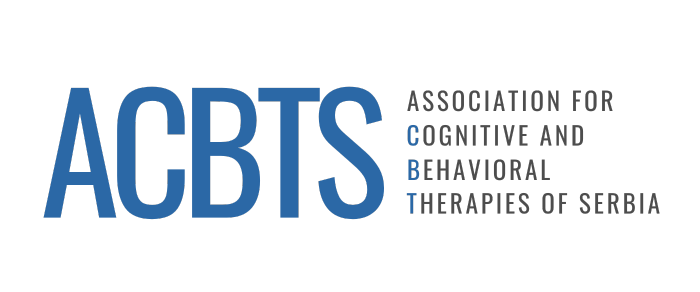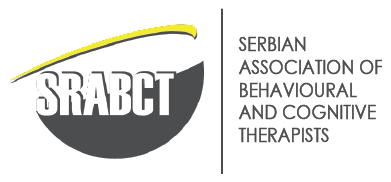Guidelines
Instructions for Oral Presenters at EABCT 2024 Symposiums
Each presentation slot is 10-12 minutes and after that there is a short Q&A session.
Use PowerPoint (PPTX) or PDF for your slides. Ensure they are clear and concise.
Bring your presentation on a USB flash, but have a copy on your email just in case.
Introduce yourself to the session chair 5 minutes before your session and test your slides on the computer at the technician in the Room where you will have presentation.
The chair will signal when you have 3 minutes left to talk.
Instructions for Poster Presenters at EABCT 2024 Symposiums
Instructions for Authors: Preparing Hardcopy Posters for EABCT 2024
To ensure your poster is professional, clear, and suitable for display at EABCT 2024, please follow these guidelines:
- Poster size – preferably A0 (841 x 1189 mm or 33.1 x 46.8 inches)
- Orientation: Portrait (vertical)
- For title use large font
- Use a readable font size (minimum 24 pt for body text)
- Choose a clear, professional font (e.g., Arial, Helvetica, Times New Roman)
- Ensure high resolution (300 dpi or higher)
- Clearly label all figures and tables
- Use high contrast between text and background for readability
Please Note: You must print and bring your poster with you. There is no option to print your poster at the venue.
Posters will be mounted on walls using adhesive strips which will be provided by the Organizer. Ensure your poster is lightweight.
The Organisers are not responsible for loss of any posters that have not been removed by the end of the Congress.
We look forward to your participation at EABCT 2024!
There are different kinds of presentations at the congress:
1. Invited Addresses (Keynote)
Only by formal invitation from the Scientific Committee.
2. Invited Pre-Congress Workshop
Only by formal invitation from the Scientific Committee.
3. Meet the Expert
Only by formal invitation from the Scientific Committee.
4. Clinical master class (public supervision)
Only by formal invitation from the Scientific Committee.
5. Clinical and research symposia
Symposia include multiple presentations on a single or related clinical or research area.
Generally, symposia will consist of a Convenor, Chair, Individual Presenters, and a Discussant (optional).
To ensure we receive adequate information, all submitted Symposia should have a symposium abstract of approximately 500 words. This should be a general description of the overall symposium, including the names of at least 3 presenters. If you wish you can provide a short summary of each speaker’s topic within this word-limit.
However, at this stage, we do not require the individual abstracts for each speaker. These will be requested if the submission is accepted.
The name and contact details of the symposium convenor/organizer must be provided. This individual accepts responsibility for ensuring that all speakers provide individual abstracts, when requested. They must also ensure that speakers have to register to attend the congress and communicate as required, practical information to the scientific committee as well as individual speakers in the symposia.
6. Skills classes
These are short skills-based sessions that address a targeted problem and/or a specific technique. Skills classes are designed to be delivered to large groups in a short length of time and should focus on the acquisition of a key clinical or research skill. The abstract should include background for the topic covered and the overall objectives of the skills class.
Contributors should provide a structured abstract to include the following:
- Title
- Very short scientific background
- Key learning objectives
- Brief biography of skills class leader(s) in one or two sentences
Delegates can choose to attend the skills classes at no extra cost. No fee is payable to the skills class presenters. The skills classes will be delivered live and in person and the skills class leader(s) are required to register for the congress.
7. Panel debate
This format involves experts providing a brief statement of their position on a specific clinical or theoretical issue or topic, and then debate differences in opinion, controversial issues etc. with other experts. This requires an active Chair who may act as an optional discussant, introduces the topic, handles the debate amongst the experts, fields questions from the audience and is responsible for time management of the session. The panel debates will be delivered live and in person and all panel members are required to register for the congress.
8. Clinical roundtable
This format involves a clinical case discussion by experts illustrating contrasting viewpoints and analysis of the clinical problem under discussion. One person is required to present the case and up to 3 people can comment on the case.
9. In-congress half day workshops
Contributors should provide a structured abstract to include the following:
- Title
- Very short scientific background
- Key learning objectives
- Brief biography of workshop leader(s) in one or two sentences
A separate registration fee is charged to delegates attending the In-Congress Half Day Workshop. The workshop leader(s) will receive 50% of the revenue from the workshop registration fees up to a maximum amount of 300 €. Workshop leaders are expected to register for the congress. If a workshop fails to reach a minimum number of attendees it will be cancelled by the organizers.
10. Open papers
These are presentations on a clinical and/or research topic with a typical time allocation of 15 minutes.
Where possible these will be organized into open paper symposia that form a coherent topic, falling within the Congress streams.
11. Posters
These are visual presentations. Both clinical and research posters are welcome. We will also consider posters reporting on studies currently in progress.
Poster sessions are scheduled throughout the Congress and there are opportunities for presenters to discuss their poster with delegates, with sessions including either a coffee or lunch break. Posters require an attractive visual presentation of the study, issue or case(s).
12. Technical demonstrations
These are 20-30 minute short demonstrations that present specific technology or equipment and its application to CBT. Technical demonstrations can include the presentation of both hardware and software, as well as research and clinical data, in a flexible yet focused manner.
The abstract should include a clear description of the relevant technology and its relevance to the application of CBT.
Contributors should provide a structured abstract to include the following:
- Title
- Technical / Scientific background
- Key features of the technology presented
- Implications for everyday clinical practice of CBT
Delegates can attend the technical demonstration at no extra cost therefore no fee is payable.
The topics for technical demonstrations can be: software demonstrations, virtual reality (VR), telehealth platforms, biofeedback and wearable technology, AI and machine learning applications, e-health and mobile applications and gamification in therapy.




